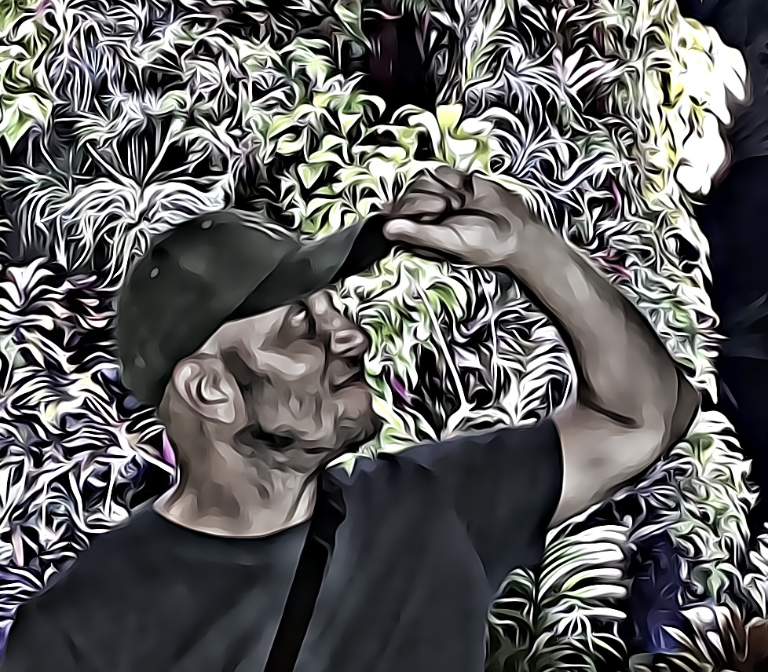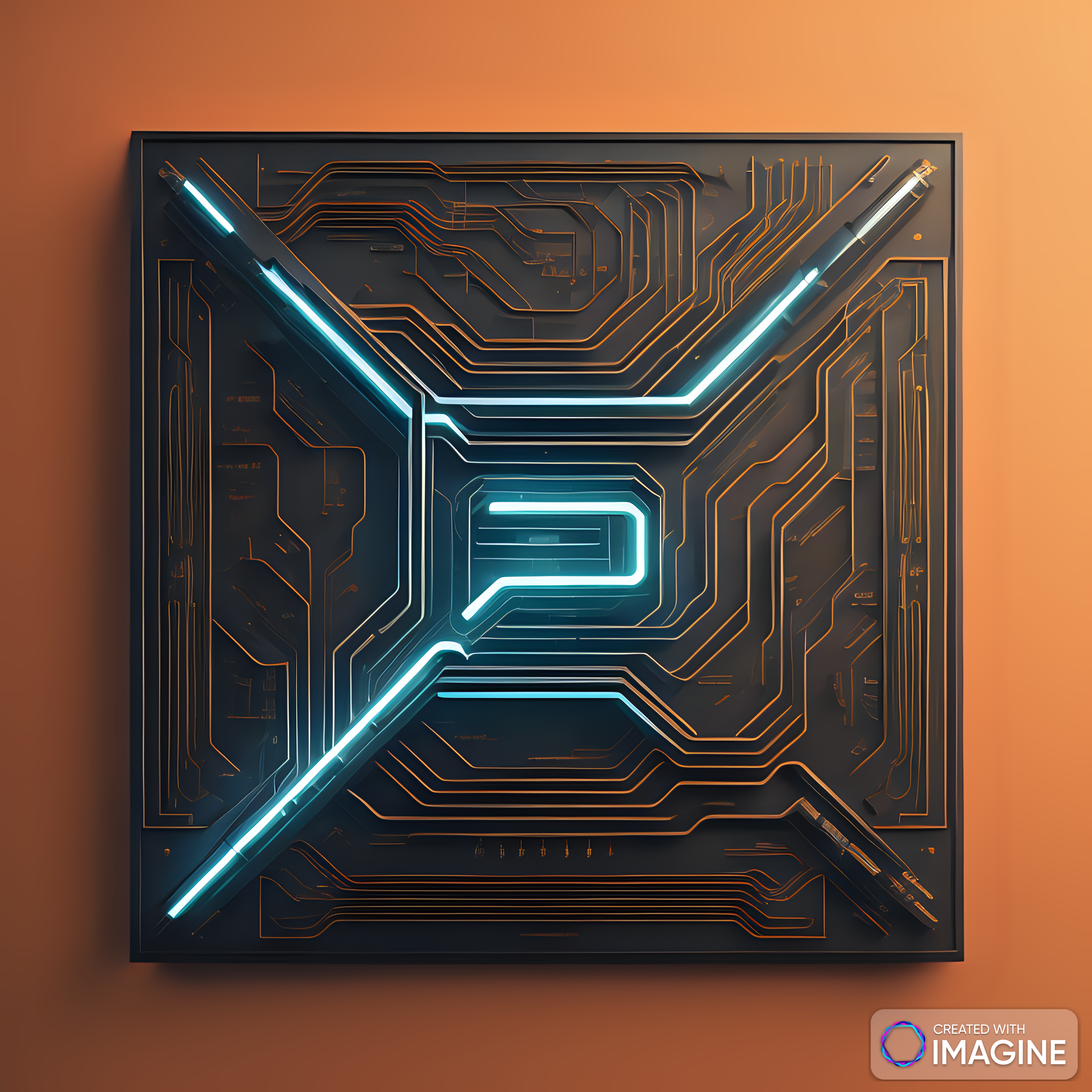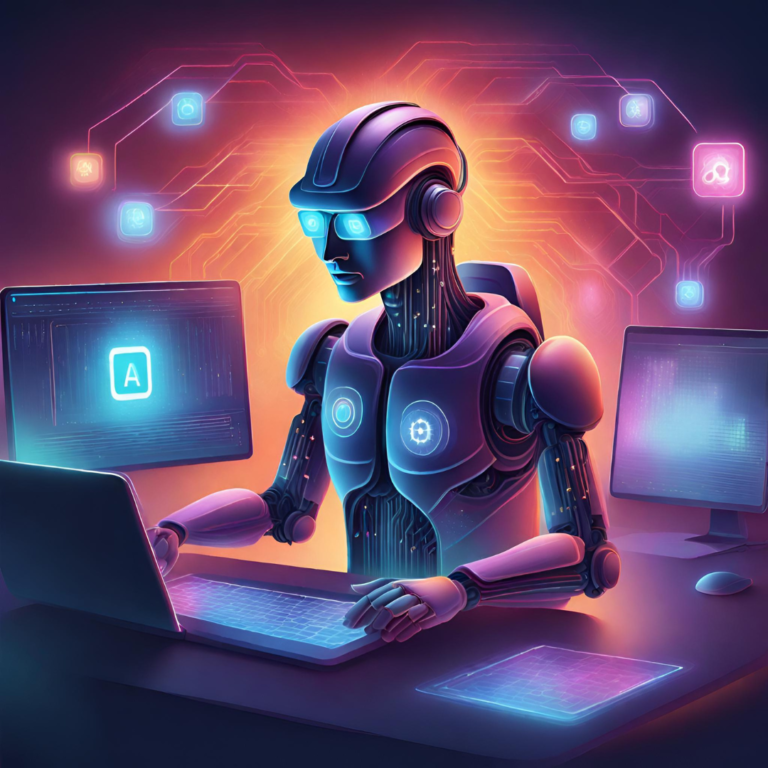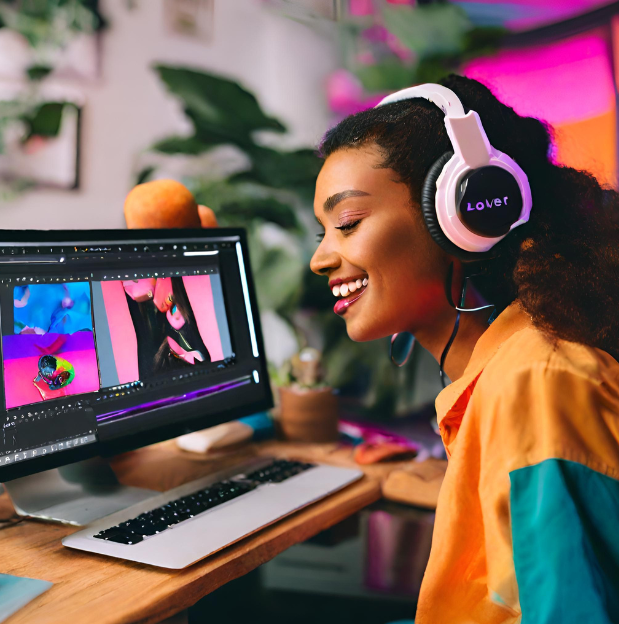Introduction
Music is an art form that has the power to evoke emotions, tell stories, and transcend language barriers. For centuries, human composers and musicians have been the driving force behind the creation of melodies and harmonies that move us. But in recent years, artificial intelligence has entered the world of music, offering exciting possibilities for both creators and listeners.
In this blogpost, we’ll explore the fascinating world of AI music generation and production tools. We’ll discuss how AI is transforming the music-making process, the tools that are available, and how artists are harnessing these innovations to push the boundaries of musical creativity.
The Rise of AI in Music
Artificial intelligence has come a long way in a relatively short time. In the realm of music, AI has been employed to analyze music, compose original pieces, generate lyrics, and even mimic the styles of famous musicians. Here are some key ways AI is making its mark:
- Music Composition: AI algorithms can now compose original music in various genres. Tools like OpenAI’s MuseNet and Google’s Magenta are capable of generating melodies, harmonies, and even full compositions based on input criteria.
- Virtual Collaborators: Musicians can now collaborate with virtual AI-powered partners. For instance, Amper Music provides a platform where you can collaborate with AI-generated music to create unique tracks.
- Music Analysis: AI can analyze existing music to extract patterns and trends, helping musicians and producers gain insights into what makes a hit song.
- Lyric Generation: AI can assist in writing lyrics by suggesting rhymes, themes, and even generating entire verses.
- Instrumentation and Arrangement: AI tools like Aiva can help in arranging music for orchestras or other ensembles.
AI Music Generation Tools
Now that we’ve touched on the various ways AI is influencing music creation, let’s explore some of the top AI music generation tools available today.
- OpenAI’s MuseNet:
- Link: MuseNet
- MuseNet is a remarkable AI system capable of composing original music in a wide range of styles. It can generate everything from classical symphonies to jazz improvisations, making it a versatile tool for musicians and composers.
- Google’s Magenta:
- Link: Magenta
- Magenta is an open-source platform for music and art generation powered by deep learning. It provides a suite of tools for music composition and generation, making it accessible to both developers and artists.
- Amper Music:
- Link: Amper Music
- Amper Music offers a unique platform that allows musicians to collaborate with AI to create original music. It’s like having an AI co-writer and composer at your fingertips.
- Aiva:
- Link: Aiva
- Aiva is an AI-powered composer that specializes in creating symphonic music. It can produce complex orchestral arrangements, making it a valuable tool for film composers and classical musicians.
- Jukedeck:
- Link: Jukedeck
- Jukedeck uses AI to compose and produce music for videos, podcasts, and other creative projects. It’s a great resource for content creators looking for royalty-free music.
The Impact on Music Creation
AI music generation tools have had a profound impact on the music industry and creative process:
- Enhanced Creativity: Musicians can use AI as a source of inspiration, pushing their creative boundaries by exploring new melodies and harmonies.
- Efficiency: AI can significantly speed up the music production process, allowing artists to create more music in less time.
- Accessibility: AI tools make music creation more accessible to those who may not have formal training in music theory.
- Collaboration: Musicians can collaborate with AI to complement their own musical abilities, resulting in unique and innovative compositions.
- Analysis and Insights: AI can analyze vast amounts of music data, providing valuable insights into what makes a hit song and helping artists tailor their music to audience preferences.
The Future of AI in Music
As AI technology continues to advance, the future of music creation and production looks promising:
- Personalized Music Experiences: AI will enable music streaming platforms to provide personalized playlists and recommendations based on individual preferences.
- AI-Enhanced Live Performances: Musicians can use AI to enhance their live performances, creating dynamic and interactive shows that respond to the audience in real-time.
- AI as a Creative Partner: AI will become an integral part of the music creation process, with artists and composers relying on AI as a creative partner rather than just a tool.
- New Music Genres: AI will contribute to the emergence of entirely new music genres and styles that were previously unimaginable.
Conclusion
Artificial intelligence is revolutionizing the music industry, offering musicians, composers, and producers a wealth of innovative tools and creative possibilities. From composing original pieces to analyzing music trends, AI is harmonizing creativity in ways that were once thought impossible.
As AI music generation and production tools continue to evolve, we can expect to see a new era of music that pushes the boundaries of human creativity. Musicians and AI are becoming partners in the symphony of the future, and the results are nothing short of extraordinary. So, whether you’re a seasoned musician or just beginning your musical journey, it’s time to embrace the power of AI and explore the endless possibilities it brings to the world of music.




